Europaudvalget 2011-12
EUU Alm.del Bilag 83
Offentligt


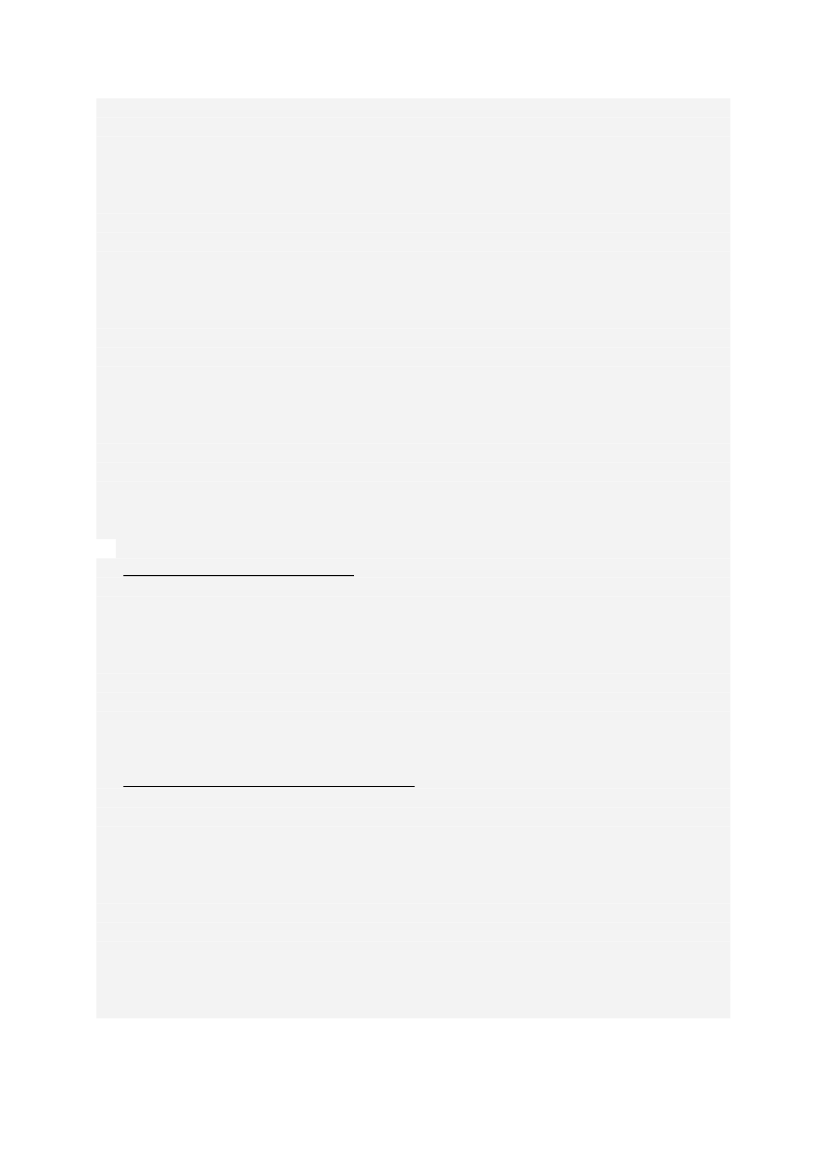












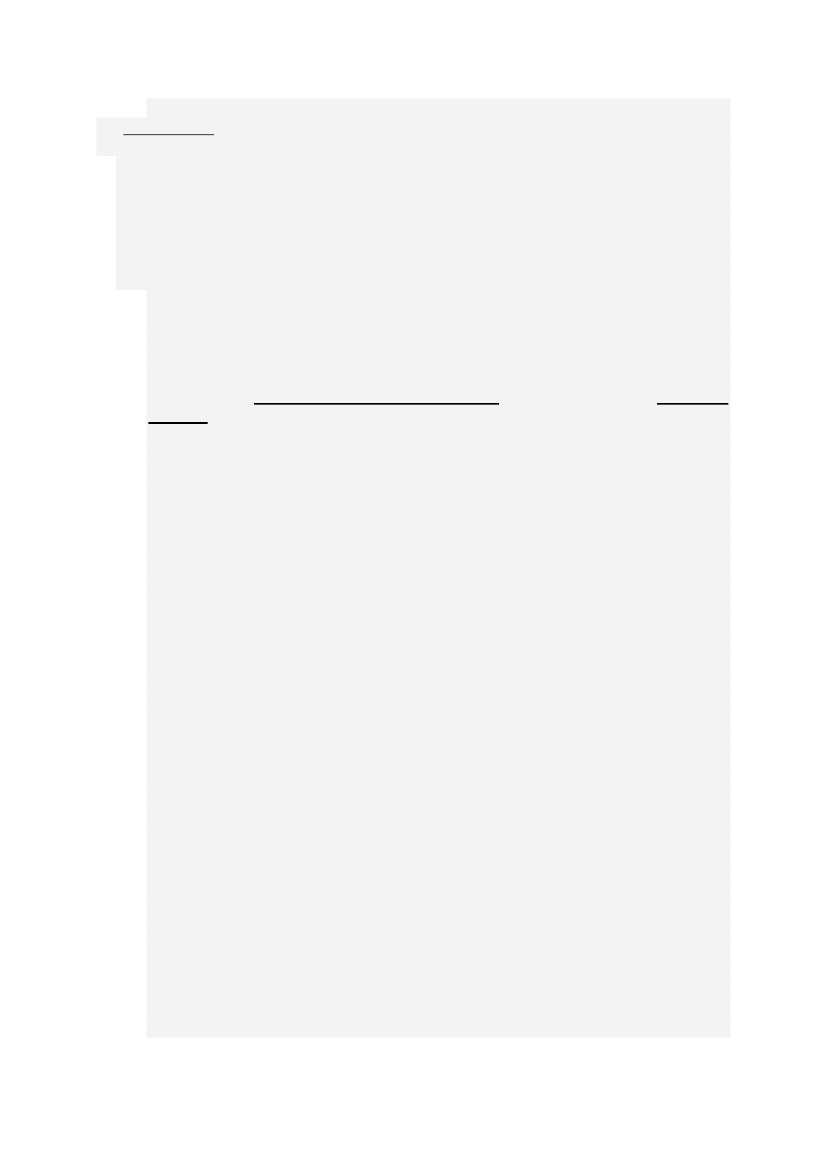



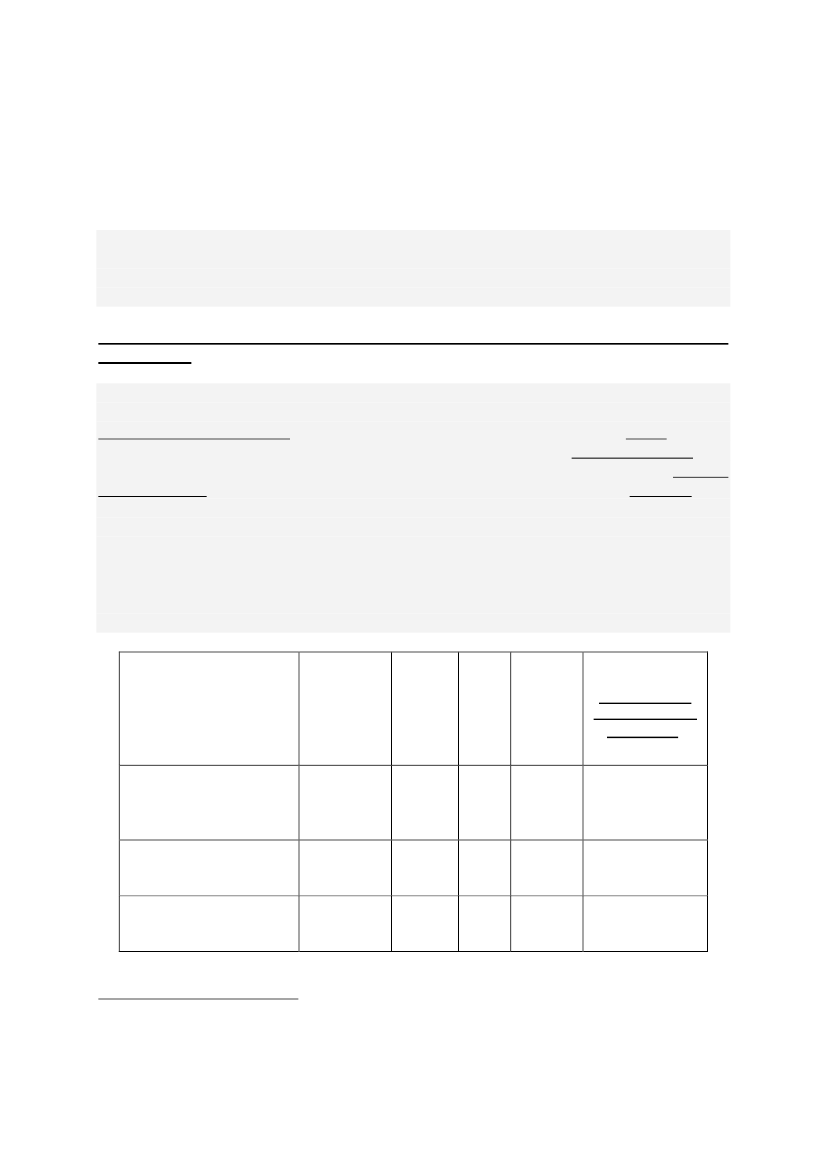
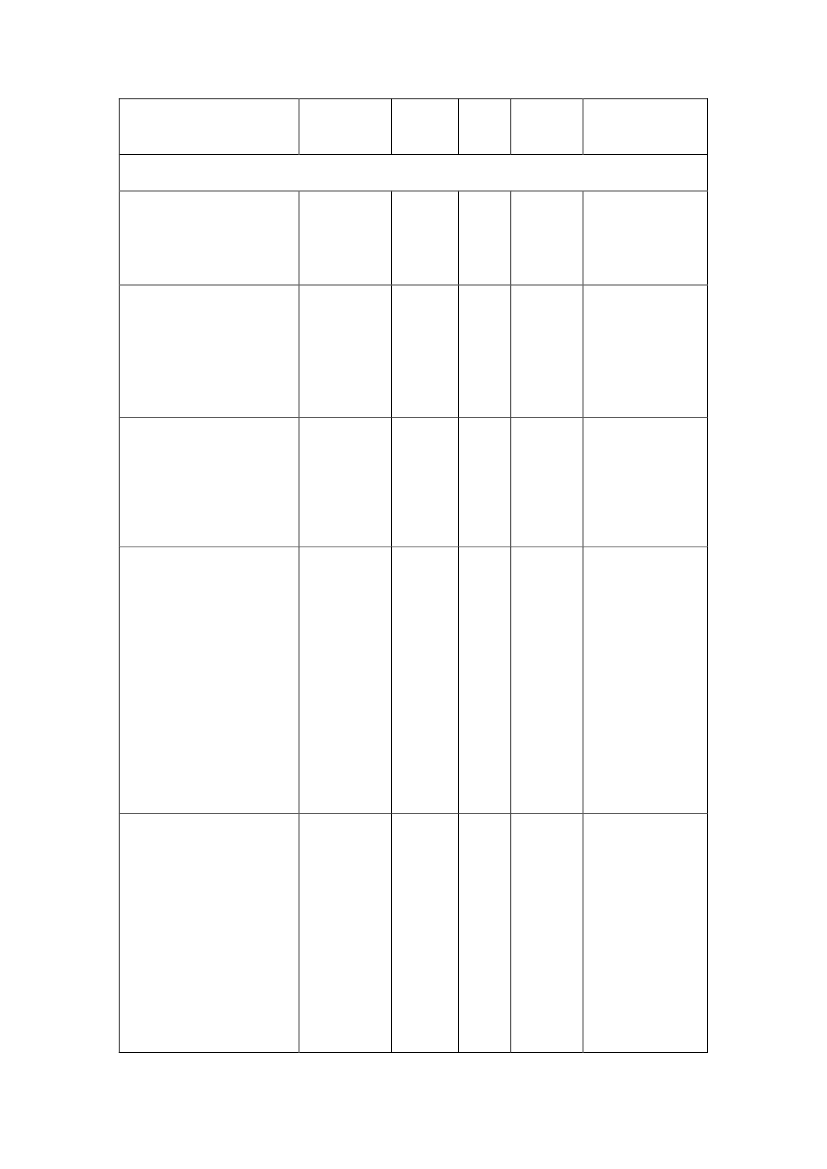
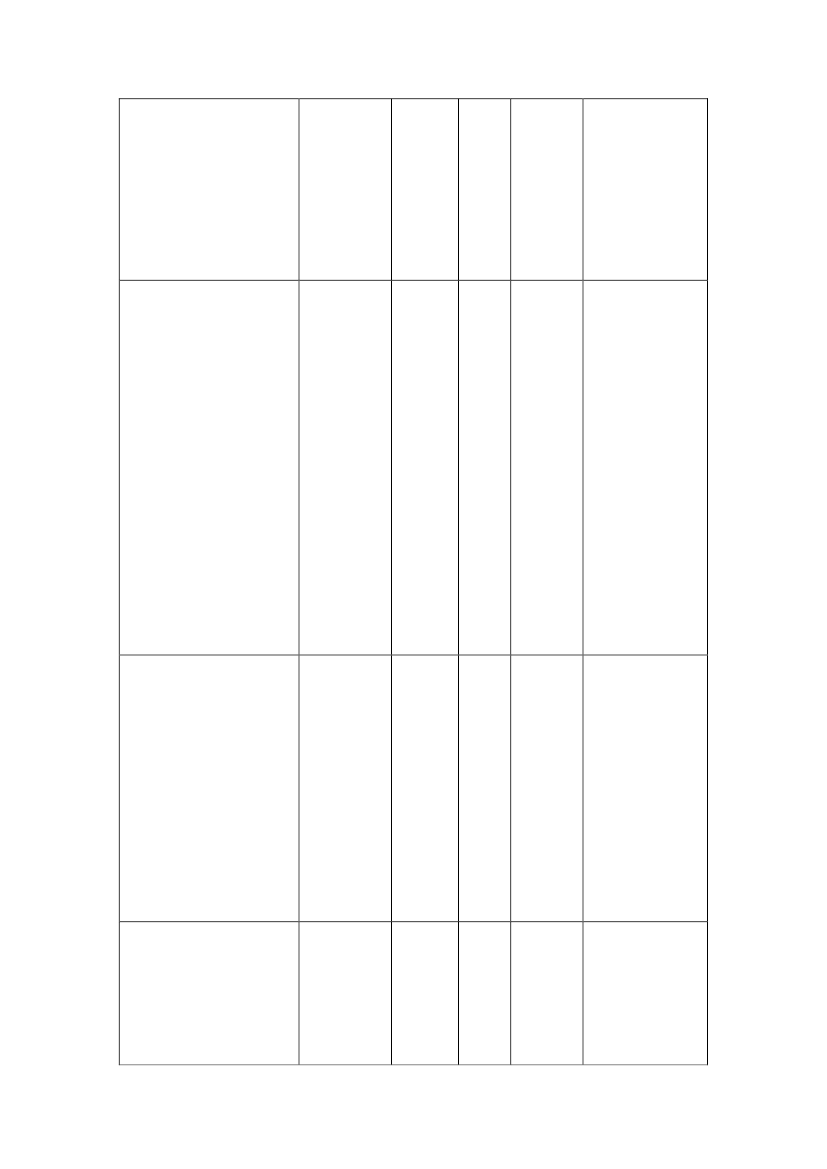
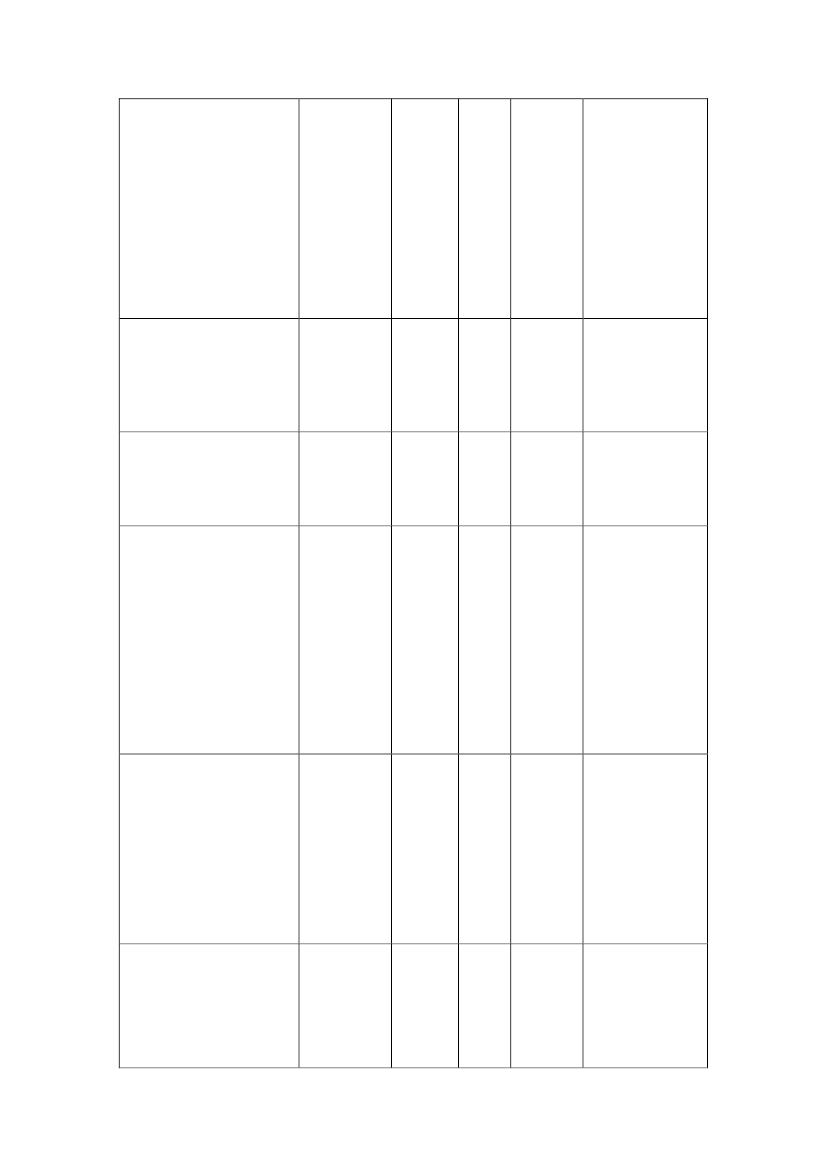
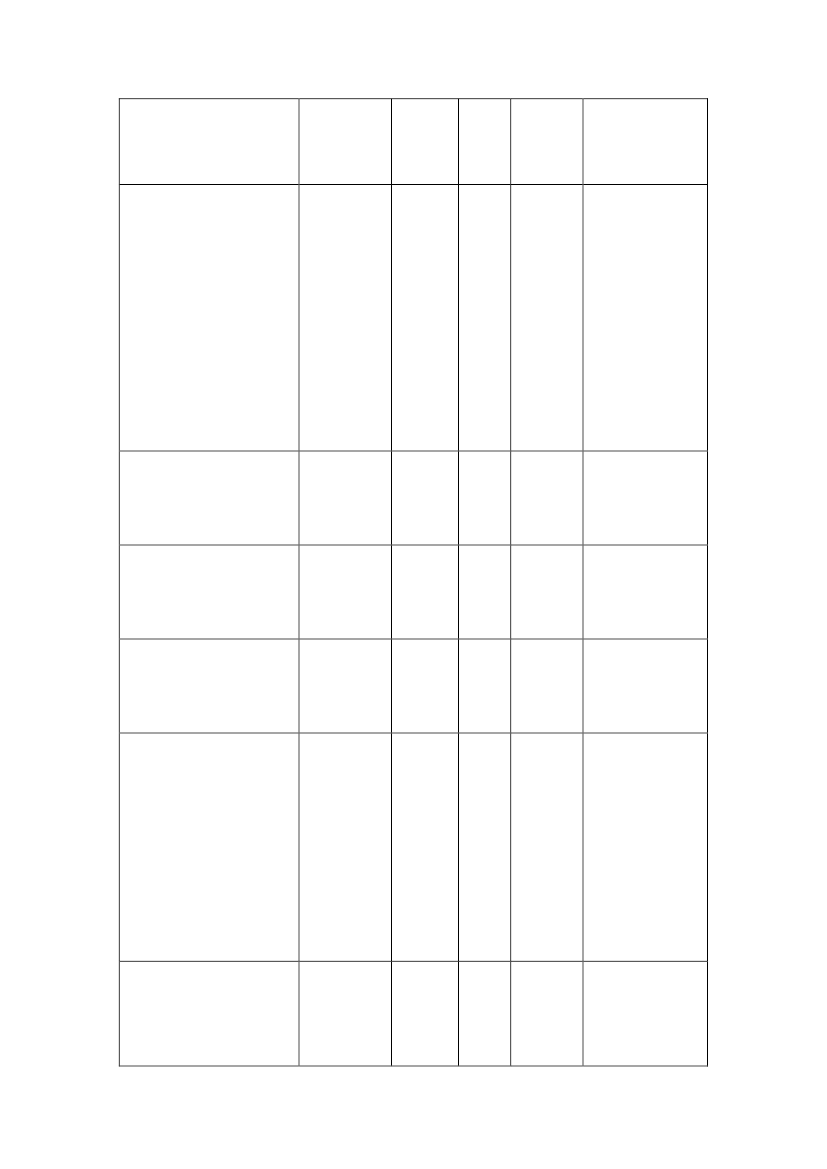
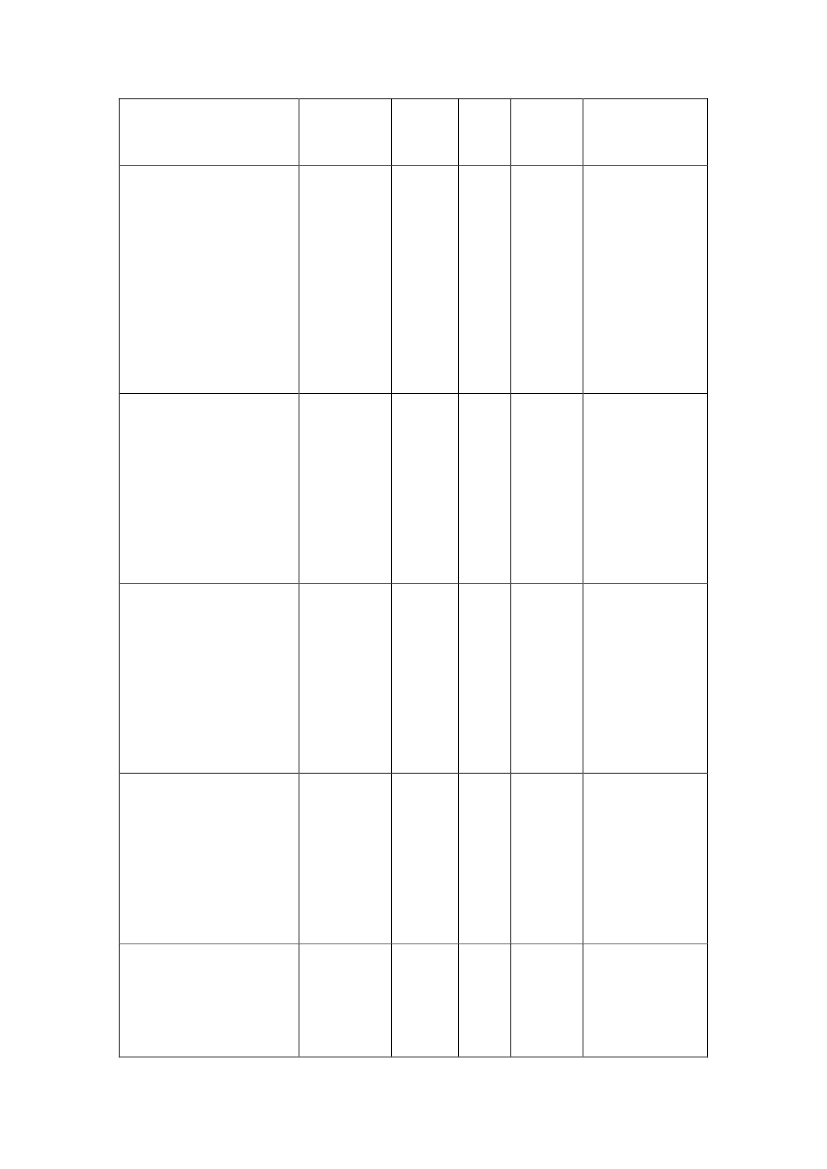
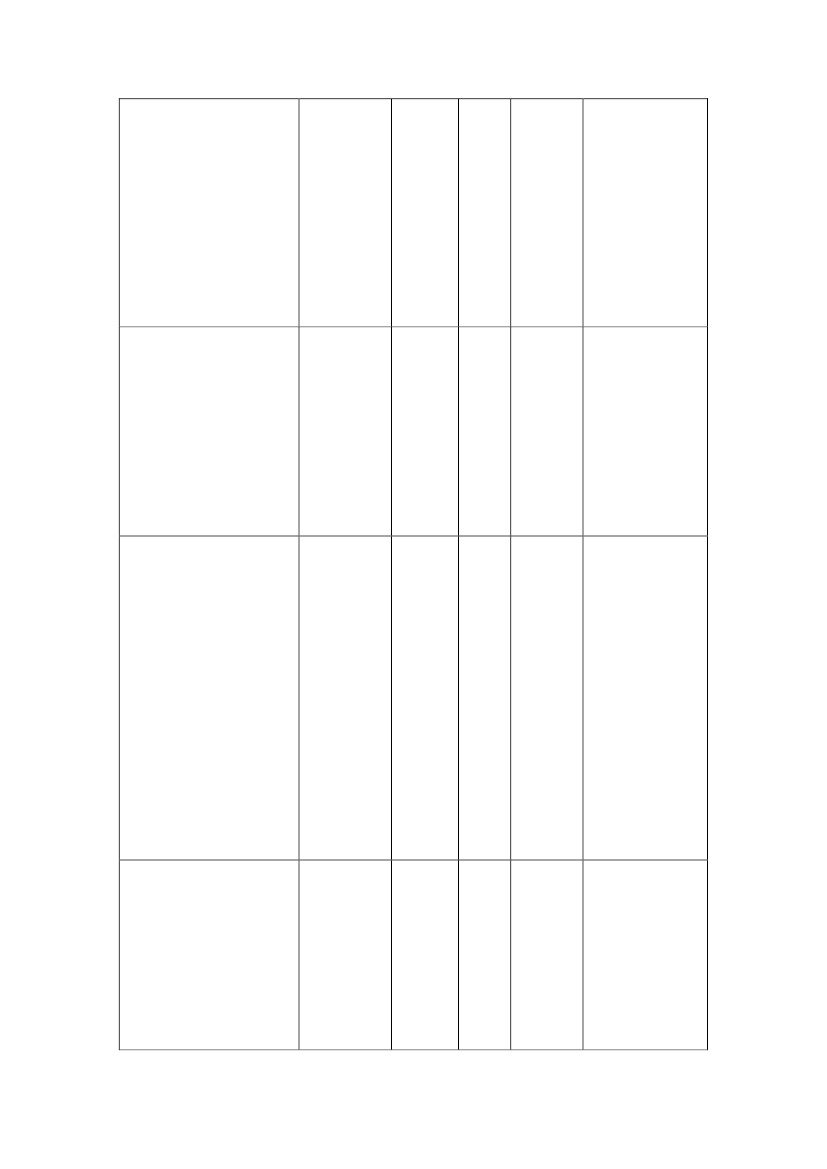
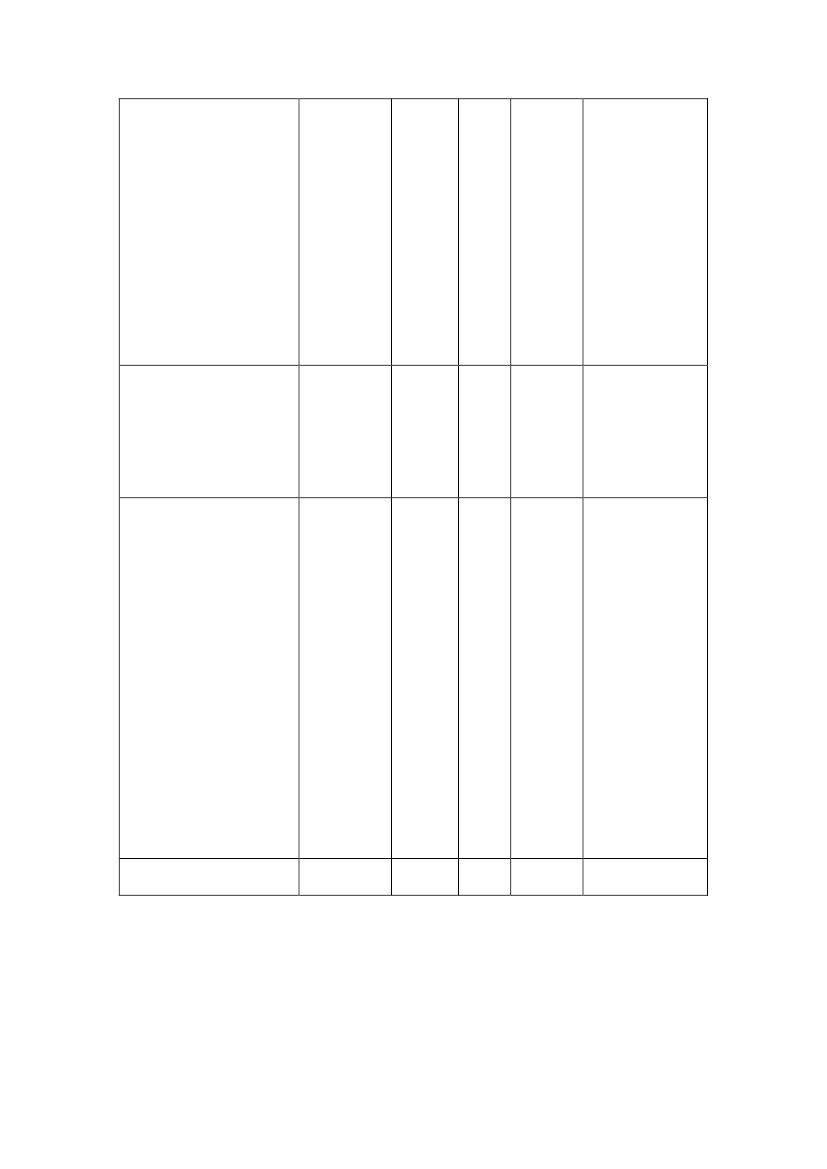
Report on the application of Directive 2005/29/EC on Unfair CommercialPractices (UCPD)Questionnaire for the Member StatesAs provided for by Article 18 of Directive 2005/29/EC on Unfair Commercial Practices (the"Directive" or the "UCPD"), the Commission should submit to the European Parliament andthe Council a report on the application of the Directive (the "Report"). In addition toproviding an overview of the implementation of the UCPD in the Member States, the Reportwill address specific issues such as the application of the Directive in the fields of financialservices and immovable property; and the application of the Directive on specific areas ofregulation, such as sales promotions. If appropriate, the Report will identify some possibleareas for revision.The Commission will take into account the feedback received by the Member States, ECCs,consumer associations and other stakeholders to prepare the Report and to determine whatfollow-up should be given to it.To this end, the Commission has prepared the following questionnaire to which we wouldappreciate receiving your input at your earliest convenience andno later than 30 September2011.The issues raised by this questionnaire are based on the Commission's experience incooperating with the Member States and other stakeholders during the transposition and firstyears of enforcement of the Directive: they also take into account the discussions held inBrussels during the working group meetings of 14 and 30 June 2011 with the UCPDenforcers and CPC network. The Commission is planning to organize an additional workinggroup meeting in November 2011.The following questionnaire is divided into three parts.The first part will focus on general issues concerning the implementation of theDirective in the Member States.The second part will focus on the provisions of the Directive including definitions(Article 2), scope (Article 3), the full harmonisation character of the directive (Article4), the criteria for assessing the unfairness of commercial practices (Articles 5 to 9),and the list of commercial practices that shall be prohibited in all circumstances(Annex I).The third part will focus on the application of the Directive to specific areas such asenvironmental claims and social networks.
For each part the Commission would like to know whether there have been any problems ofinterpretation / application of the Directive and will seek the views of the Member States as towhether there are sufficient grounds for a possible review of the Directive.
1/15
You will receive separate questionnaires for the areas of financial services and immovableproperty from Civic Consulting (contractor for the Commission)1.In addition, an Annex in the form of a table has been enclosed to this questionnaire to gatherinformation on the main unfair commercial practices encountered by national authoritiessince the adoption of the Directive.Please return your responses to the questionnaire with the reference:"Consultation on theapplication of Directive 2005/29/EC on Unfair Commercial Practices"to either:European CommissionDirectorate-General JusticeUnit A3 – Consumer and Marketing LawRue Montoyer 59B-1049 BrusselsBelgiumor by e-mail to [email protected] to the attention of Mr. AngeloGrieco and Ms Sophie Ridoux or by fax to +32 2 2967669 at the latest by:30 September 2011.For any queries or clarifications, please contact eitherMr Angelo Grieco (e-mail: [email protected] tel: +32 2 2960433) orMs Sophie Ridoux (e-mail: [email protected] tel: +32 2 2993772).Member State: [Denmark]
I – The Implementation of the Directive in the Member States1National Legislation Please indicate whether, since the transposition of the UCPD in yourcountry, there have been any changes in national legislation which relate to theimplementation / application of the Directive
Denmark implemented the UCP-Directive in 2006 by an amendment to the MarketingPractices Act. At that time Denmark was of the opinion that sales promotions did notfall under the scope of the Directive, as that field was expressly covered by the proposalfor a regulation COM(2001) 546 final concerning sales promotions, which waswithdrawn by the Commission in 2006. Subsequently Denmark maintained a ban onsales promotions in the form of trading stamps/collectable vouchers and draws and prizecompetitions.However in recent judgements the European Court of Justice has stated, that salespromotions does in fact fall within the scope of the Directive, and that the Directive mustbe interpreted as precluding national legislation, which provides forspecific
1
The questionnaire on financial services has been sent in June.
2/15
prohibitions , without taking account of the specific circumstances of individual cases ofcommercial practices (Case no. C-269/07, C-299/07, C-304/08 and C-540/08)In the light of the judgements from the European Court of Justice Denmark has made anew amendment to the Marketing Practices Act that lifts the ban on sales promotions inthe form of trading stamps/collectable vouchers and draws and prize competitions. Theamendment has had effect since 1 July 2011.On that background Denmark strongly recommends a revision of the Directive that willexclude all forms of sales promotions from the scope of the Directive.In addition to that, Denmark has had a dialogue with the Commission regarding literalimplementation of Directives.Denmark would therefore not fail to draw attention to the fact that the Commissionmore often tend to require literal implementation of Directives. Denmark regards this asa limitation of the room for manoeuvring that has been ascribed the Member Stateswhen implementing Directives, cf. article 249 part 3 of the treaty of the European Union,which leaves national authorities the choice of form and methods when implementingDirectives.Denmark finds this development problematic and has therefore sent a letter to theCommission dated the 4thof December 2008 regarding this subject.2Decisions / Sanctions (by country) Please provide the data you have available on decisionstaken and sanctions imposed for infringements of the UCPD (e.g. leading cases, totalamount of the sanctions imposed for violation of the UCPD etc.) possibly classified by theprovision(s) infringed, type of practice and/or business sector concerned.
The Consumer Ombudsman has had approximately 575 cases – with reservations foreven more - concerning breach of the UCPD.It is important to notice, that the number of cases should be seen in connection with awell incorporated enforcement system.3Most frequent unfair commercial practices Please use the table in the Annex to provideinformation on the most frequent unfair commercial practices you have encountered.
The cases mainly concern breaches of article 6 and 7.The Consumer Ombudsman has not had any cases concerning breaches of article 8 and9.The Consumer Ombudsman does not distinctly register if a case concern any of themisleading commercial practices mentioned in Annex 1 of the Directive. Theabovementioned number on misleading practices therefore might also concern breachesof Annex 1 of the Directive.
3/15
However the Consumer Ombudsman has distinctly registered that a number of 52 casesconcerned breach of Annex 1 no. 2 (displaying a trust mark, quality mark or equivalentwithout having obtained the necessary authorisation).4Effectiveness of national enforcement of the UCPD:a)In general terms, how would you assess the effectiveness of the enforcement actionagainst unfair commercial practices in your country:
In Denmark the Consumer Ombudsman - who is an independent public authority - isthe relevant enforcement authority. Negotiation and dialogue are his preferred meanswhen seeking to induce business and trader to act in accordance with the regulationregarding unfair commercial practices, and a wide majority of the cases are settled bythose means.The negotiations with businesses and traders will often conclude in the issueing ofguidances or guidelines. These include guidelines on price information, covertadvertising, environmental marketing claims and so forth.However, negotiation is not always enough. Court enforcements for instance willsometimes be necessary.i) Do you think that your national authorities dispose of sufficient enforcementpowers and/or resources in this respect?National authorities dispose of sufficient enforcement powers when dealing withnational cases/cases that are not related to cross-border commercial practices.However the Consumer Ombudsman – being the central Danish enforcementauthority of the directive – has had problems with the enforcement when dealingwith cross-borders commercial practices within the EU, mainly due to lack ofmotion in enforcement requests handed over to authorities in other countries.ii) Are the available sanctions and remedies adequate to prevent the unfaircommercial practices?The available sanctions and remedies are adequate to prevent unfair commercialpractices in national cases/cases that are not related to cross-border commercialpractices.As mentioned above the relevant Danish authorities have had problems with theenforcement when it comes to cases regarding cross border commercial practiceswithin the EU.b) Please indicate whether there are any measures that, in your opinion, would allow abetter enforcement of the UCPD.Denmark very much appreciates the workshops and meetings that theCommission has held regarding the application of the UCP-Directive.
4/15
Denmark finds that further regular meetings between the national authoritiesand the Commission where the application and interpretation of the Directive arediscussed would be very valuable. Especially there is a need to discuss theenforcement of the UCP-directive related to cross-border commercial practices.Furthermore Denmark is of the opinion that uniform interpretation of theDirective between all member states is of high importance. Therefore Denmarkfinds regular discussions between the Commission and the member statesregarding the guidelines on implementation/application of the Directive would bevery useful as well as continuous development of the guidelines. FurthermoreDenmark appreciates the initiative taken to establish a database with access toview all relevant judgements and administrative decisions regarding the UCP-Directive, as this would be very useful to support uniform interpretation.5Enforcement of the UCPD and Self Regulation / ADR mechanismsa)Please indicate whether you are aware of the existence of codes of conduct concerningunfair commercial practices in your country (Article 10 of the UCPD). If applicable,please indicate what are the fields/sectors concerned.
Denmark does not have any codes of conduct that falls within the scope of the UCP-Directive.b) Please provide, where possible, a short description of the role of the respective self-regulatory bodies / authorities and their competences. In particular, please indicatehow well, in your opinion, the self-regulatory bodies cooperate with enforcementagencies.Denmark does not have any self regulatory bodies concerning unfair commercialpractices.c)In relation to the codes identified under (a) please indicate how effective is, in youropinion, the respective enforcement system and / or compliance to the rules of thecode(s) by operators in the sector concerned.
d) Please indicate whether measures have been taken in your country to encourage self-regulation.The Danish Marketing Practices Act authorizes The Danish Consumer Ombudsmanto negotiate guidelines and guidances in dialogue with businesses and traders. TheConsumer Ombudsman uses this possibility to a great extend.The Consumer Ombudsman has regular meetings and on going dialogue with thebusinesses and trades regarding self regulation. The Consumer Ombudsman is alsoactive in educational work regarding self regulation.II – Provisions of the Directive6Definitions (Art. 2)
5/15
a)
Have you encountered difficulties in the implementation of the UCPD in relation tothe following definitions / concepts:i)ii)iii)iv)Trader / consumerProfessional diligenceInvitation to purchaseAny other definition
In the affirmative please describe the problems encountered.
b) Have you issued any guidelines / principles at national level in order to help enforcersimplementing these definitions?Denmark has not issued any guidelines at national level in order to help enforcersimplementing these definitions. However the adopted amendment of the MarketingPractices Act implementing the Directive does contain explanatory notes helpingenforces implementing the definitions.c)Are you aware of any court / administrative decision taken at national level in relationto the concept of trader / consumer / professional diligence / invitation to purchase /any other definition?
There are not any court decisions or administrative decisions taken at national level,that specifically take a stand on the definitions in the Directive.d) Do you have any suggestions as to whether any of the definitions under Article 2 ofthe UCPD can be improved?According to Article 2 (a) in the Directive on misleading and comparative advertising84/450/EC (2006/114/EC) advertising means the making of a representationin anyform[…..] in order to promote the supply of goods or services, […..]According to Article 2 (d) in the UCP-Directive ”business-to-consumer commercialpractices” means any act, omission, course of conduct or representation, [..ect..],directly connected withthe promotion, sale or supply ofa productto consumers.The preamble of the UCP-Directive (7) states, that the Directive ”addressescommercial practicesdirectly relatedto influencing consumers´transactional decisionsin relation to products.It does not address commercial practices carried out primarilyfor other purposes, including for example commercial communication aimed atinvestors, such as annual reports and corporate promotional literature”.The Danish Consumer Ombudsman had a case where the above mentioned differencecame up. In the specific case the question was raised if or not a webpage – a computergaming site targeted to children, with the purpose of teaching them financialmechanisms in society – should be identified as advertisement.
6/15
A financial institution was behind the gaming page and the typography, choice ofcolours etc used at the page could give associations to the (very well know) financialinstitution. At first glance, The Consumer Ombudsman was of the opinion that eventhough the game was educational and neutral as such with no mentioning of theinstitutions name, the game page was a branding of the company and shouldtherefore be identified as an advertisement.However, the gaming page was not ”directly connected with the promotion, sale orsupply of a product to consumers” whatsoever. The Consumer Ombudsman wastherefore in doubt if the gaming site, though considered branding, was ”commercialpractice”, cf. the UCP-Directive, and thereby covered by the provision andadvertising identification in the Marketing Practices Act, which so far had beeninterpreted in accordance with Article 2 in the old Misleading Advertising Directive.Subsequently the questions are:Is the difference between the UCP-Directive and the MCA Directiveintentional?Do commercial practicesnotrelated to a product fall outside the scope of theUCP-Directive?Is branding not ”commercial practices”?7Scope (Art. 3)
Application of the Directive to B2B or C2B or C2C or other transactions / practicesa)Do you apply the provisions transposing the Directive in national law to business-to-business, consumer-to-business or consumer-to-consumer transactions? If so, pleaseexplain to which extent.
The provisions in the Danish Marketing Practices Act transposing the UCP-Directiveshould be interpreted in compliance with the UCP-Directive, thus the provisions onlyapplies B2C.b) Is there a need, in your opinion, for an extension of the Directive to some business-to-business, consumer-to-business or consumer-to-consumer transactions?In reply to thisquestion, please provide concrete examples of transactions which, in your opinion,should be included in the scope of the Directive.Denmark sees no need to extend the Directive. If the Directive is extended to somebusiness-to-business transactions it is important that the level of consumer protectionin general is not lowered.c)In case (see previous question 7 (b) above) you consider that the UCPD should beextended to cover (some or all) business-to-business relationships, would it beappropriate, in your opinion, to use this opportunity to merge the UCPD withDirective 2006/114/EC on misleading and comparative advertising? This would createa unified legal regime to fight unfair commercial practices (including illegitimatecomparative advertising) applicable to business-to-business and business-to-consumertransactions.Please describe the arguments against and in favour of this possibility.
7/15
Section 5 of the Danish Marketing Practices Act implements the Directive onmisleading and comparative advertising:According to Section 5 comparative advertising means any advertising whichexplicitly or by implication identifies a competitor or products or services offered bya competitor.Comparative advertising is permitted under the Marketing Practices Act if theconditions in the MCA Directive are met.Section 5 applies to business-to-business, but it also has an effect on consumers if thecomparative advertising is misleading – even though the practice should by assessedby the UCP DirectiveThis speaks in favour of merging the two Directives.If the Directives are not merged it is very important that the two Directives are inagreement with each other, cf. the answer to question 6 (d).d) Do you apply the UCPD to misleading and aggressive demands for payment outside ofa contractual relationship (i.e. in relation to practices which are not directly connectedwith the promotion, sale or supply of a product to consumers)?This would, forinstance, include misleading and aggressive demands for money in relation to wheel-clamping and car parking "fines" by private companies; so-called “civil recovery”whereby those accused of minor shoplifting are asked to pay fixed sums incompensation; or where a trader sends an invoice demanding payment to the wrongperson who was never a customer.Noe)Is there a need, in your opinion, to regulate the practices identified under 7 (c) (orsimilar practices) in the UCPD?
On the present basis Denmark does not see a need to regulate the practices mentionedunder 7 (c).Relationship with sector-specific directivesWhen sector-specific directives overlap with the general provisions of the UCPD, theprovisions of the lex specialis will prevail (Art. 3(4)). The UCPD complements sector-specific provisions by filling the gaps in the protection against unfair commercialpractices.f)Please specify whether you encountered difficulties in assessing which directive toapply, in the case where a practice may fall under the provisions of two directives (e.g.the UCPD and: Directive 2000/31/EC on e-Commerce; Directive 93/13/EEC on unfairterms in consumer contracts; Directive 98/6/EC on price indication; Directive 2008/48on credit agreements for consumers; Directive 2006/123/EC on services in the internalmarket and Directive 2009/136/EC on universal service and the processing of personaldata ).8/15
If there is a conflict between two Directives the sector specific Directive shouldprevail. If there is not a conflict between two Directives, both Directives should apply.The UCP-Directive is the fundamental Directive and should only give way to thesector specific directive if the latter is in conflict with the UCP-Directive. In otherwords, if a company can comply with national legislation implementing both directiveprovisions, the UCP directive should apply, and the conflict is only relevant if acompany can only comply with one provision by infringing the other.Denmark is of the opinion that this practice should be clarified.g) Is there a need to modernise the current provisions of Directive 98/6/EC on priceindication and include them in the UCPD?In this case the Directive 98/6/EC wouldcease to exist and merged with the UCPD.There seems no need for the time being.h) The Guidance provides some clarification on this issue. Would there be a need, inyour opinion, to further develop either in the UCPD or in the Guidance the applicationof thelex specialiscriteria in specific cases?Only if there is a conflict between two Directives the sector specific Directive shouldapply. If there is not a conflict between two Directives, both Directives should apply.The UCP-Directive is the fundamental Directive and should only be dispensed with, ifa provision in one of the above mentioned Directives is in conflict with the UCP-Directive. This practice should be clarified.Minimum harmonisation clausei)Please specify whether your country applies more restrictive implementing other EUDirectives (Art. 3(5)). In the affirmative, please list / describe such provisions.
Denmark has not made use of the possibility to lay down more strict regulation thanprovided for in existing minimum directives.8Full harmonization character (Art. 4)a)Do you have any national rules restricting the use of specific commercial practices(such as in the field of sales promotions, price reductions, advertising to children,doorstep selling…)In reply to this question, please provide a short description ofthese provisions (e.g. the obligation of displaying a reference price when announcingsales / promotions and the associated requirements).
MinorsAccording to the Danish Marketing Practices Act marketing directed at children andyoung people shall be framed with specific reference to their natural credulity andlack of experience and critical sense, as a result of which they are readily influencedand easy to impress.Marketing directed at children and young people must not directly or indirectly incite9/15
them to violence, use of intoxicants (including alcohol) or other dangerous orinconsiderate behaviour, nor make unwarrantable use of violence, fear orsuperstition in order to influence.In relation to this subject Denmark would like to inform the Commission thatDenmark intends to put more focus on children’s and young people’s conditions asconsumers. Minors are increasingly subjects to commercial campaigns, but they donot always have the experience needed to see through complex purchase situations.Therefore Denmark would like to take the opportunity to encourage the Commissionto also put focus on this subject in the evaluation and possible revision of theDirective.The Danish rules regarding advertising addressed to minors or featuring minors intelevision, radio and on demand audiovisual media services are laid down inExecutive Order no. 338 of April 16, 2011 concerning Radio and TelevisionAdvertising and Programme Sponsorship.According to section 13 of the Executive Order, advertisements for alcoholicbeverages in television, radio and on demand audiovisual media services shall not beaimed specifically at minors. Advertisements in television and radio shall not showminors consume alcohol.According to section 17, advertisements directed at minors may not be presented insuch a way that they may have a physical or morally detrimental effect on suchpersons Also, they shall not be formulated in such way that they exploit minors’natural credulity and loyalty and their special confidence in parents, teachers orother persons. They may not undermine such persons' authority and responsibility.According to section 18, advertisements in television and radio shall not withoutreason show minors in dangerous situations. Furthermore, advertisements in radioand television shall not encourage minors to stay at or enter dangerous places, usedangerous products or in any means put themselves in dangerous situations.According to section 19, advertisements in television and radio shall not directlyencourage minors to persuade others to purchase the goods or services beingadvertised or promise them prizes as a reward for winning new purchasers.According to section 20, advertisements in television and radio shall not underminesocial values e.g. by conveying the impression that possession, use, or consumption ofa product in itself gives minors physical, social or other psychological advantagesover other minors who do not own, use, or consume this product or that it can havethe opposite effect. Furthermore, advertisements in television and radio shall not givethe impression that minors that fail to own, use, or consume the relevant product willin any way make them less privileged than other minors, or expose them to contemptor ridicule.According to section 21, particular care shall be taken to ensure that advertisementsin television will not mislead children and young people as to the size, value, type,durability or performance of the advertised product. Advertisements in television fortoys shall clearly state the size hereof. Where the use or the shown or described result10/15
of the product requires an extra attachment (e.g. batteries), this shall clearly bestated. If a product is part of a series, this shall also clearly be stated. Statements ofprice may not give children and young people an unrealistic idea of the value of theproduct, e.g. by using the word "only". No advertisement in television may suggestthat the advertised product is easily affordable by any family. Advertisements intelevision shall indicate the degree of skill required to use the product. Where theresult of the use of the product is shown or described, the result presented in theadvertisement shall be reasonably achievable by an average child in the age group forwhich the product is designed.According to section 22, figures, puppets and similar which are important andregular elements in programmes for children under 14 years may not appear inadvertisements in television and radio for products of particular interest to children.Likewise, persons affiliated with programmes for children under 14 years may notadvertise products of particular interest to children under 14 years in television andradio.According to section 23, advertisements in television and radio for chocolate, sweets,soft drinks, snacks and similar may not indicate that the product may replace regularmeals.According to section 24, children under the age of 14 may only appear in televisionadvertisements where such appearance is either a natural element of the depictedenvironment, or necessary in order to explain or demonstrate the use of productsassociated with children. Children under the age of 14 may not recommend orprovide testimonials endorsing products or services of any kind.According to section 25, advertisements in on demand audiovisual media servicesmay not cause minors physical or moral damage and shall not directly exhort minorsto buy or hire a product or service by exploiting their inexperience or credulity,directly encourage them to persuade their parents or others to purchase the goods orservices being advertised, exploit the special trust minors place in parents, teachers orother persons, or unreasonably show minors in dangerous situations.Communication by telephoneAccording to section 6 (1) in Act on Certain Consumer Contracts traders may not,without a prior request to do so, communicate in person or by telephone with aconsumer at his residence or workplace or another place to which there is no publicaccess with a view to obtaining, immediately or subsequently, an offer or acceptanceof an offer to conclude a contract.The ban in Section 6 (1) does not apply to communications by telephone concerningordering books, subscribing to newspapers, weeklies and periodicals, brokeringinsurance contracts and subscribing to rescue services or ambulance transport with acompany with which one or more municipalities have concluded contracts for theperformance of rescue and extinguishing work in the event of fire.According to Section 7 of the Act on Certain Consumer Contracts promise made by aconsumer in connection with a trader’s communication in contravention of Section 6is not binding.11/15
b) How did the Directive impact this legislation? Do you consider that the fullharmonisation character of the UCPD has created legislative gaps in certain areas (e.g.sales promotions) which have affected the effective enforcement against certain unfaircommercial practices?In reply to this question, please provide a detailed descriptionof the problems encountered.Section 8 in the Danish Marketing Practices Act regarding marketing directed atchildren and young people have not been impacted by the UCP-Directive. Section 8partly covers Article 5 (3) in the UCP-Directive and further vulnerable groups areprotected by section 1 and 3 in the Marketing Practices Act, cf. below.According to Section 1 traders subject to the Act shall exercise good marketingpractice with reference to consumers, other traders and public interests.Marketing in respect of consumers’ economic interests may not be designed tosignificantly distort their economic behaviour.According to Section 3 traders may not use misleading or undue indications or omitmaterial information if this is designed to significantly distort consumers’ or othertraders’ economic behaviour on the market.Marketing whose content, form or method used is misleading, aggressive or subjectsthe consumers or traders to undue influence, and which lends itself to significantlydistorting their economic behaviour, is not permitted.Where factual statements are made, these must be capable of being substantiated bydocumentation.The above mentioned Section 21 of the Executive Order no. 338 of April 16, 2011concerning Radio and Television Advertising and Programme Sponsorship has beenimpacted by the UCPD:Section 21 regards misleading of children in advertisements and is therefore coveredby the UCPD. The provision, however, (along with the other mentioned rules) iswithin the field approximated by the Audiovisual Media Services Directive whichcontains minimum harmonisation clauses. Section 21 is therefore covered by article 3(5) of the UCPD which states that Member States shall be able to continue to applynational provisions within the field approximated by the Directive which are morerestrictive or prescriptive than the Directive and which implement directivescontaining minimum harmonisation clauses.Therefore, the Danish government has upheld Section 21 with one exception: TheSection used to include radio advertisements but as the Audiovisual Media ServicesDirective only concerns television it has only been possible to uphold the provisionwith respect to television. Hence, since September 25, 2009 radio advertisements havenot been covered by section 21 as a consequence of the UCPD.The use of Article 3(5) with respect to Section 21 has been notified for and acceptedby the European Commission.12/15
The consequence of the fact that radio advertising is no longer covered by Section 21is that it is only the general rules of the Danish Marketing Practices Act (no. 1389 ofDecember 21, 2005) on misleading advertisements that apply to advertisements inradio. As Section 8 of this Act deals with rules on marketing aimed at minors theDanish government does not find, however, that the UCPD has created a legal gap inthe area of advertisements to minors.When implementing the UCP-Directive there were not made any amendments to theabove mentioned section 6 and 7 of the Danish Act on Certain Consumer Contracts,since the concerned sections do not fall within the scope of the Directive. The reasonbehind the ban in Section 6 of the Danish Act on Certain Consumer Contract is toprotect the invasion of privacy (taste and decency), cf. the preamble (no. 7) of theUCP-Directive.c)Would there be a need, in your opinion, to further regulate any of these practices in theDirective?Minors are increasingly subjects to commercial campaigns, but they do notalways have the experience needed to see through complex purchase situations.Therefore Denmark would like to take the opportunity to encourage theCommission to also put focus on this subject in the evaluation and possiblerevision of the Directive.i) Would a clarification in the Guidance on the implementation / application of theUCPD be an adequate mean to address these issues?ii) Should specific commercial practices be excluded from the scope of the Directive?In reply to this question, please motivate the reasons as extensively as possible.When implementing the UCP-Directive Denmark – and several other Member States –were of the opinion that the UCP-Directive did not apply to sales promotions, as thelatter were explicitly governed by the proposal for a regulation, COM(2001) 546 finalconcerning sales promotions, which was subsequently withdrawn by the Commission in2006.However the European Court of Justice has subsequently in a number of judgementsstated, that sales promotions do fall with in the scope of the Directive and that theDirective must be interpreted as precluding national legislation which provides for aprohibition against sales promotions in principle, without taking account of the specificcircumstances of individual cases.As a consequence of the above mentioned judgements Denmark has repealed twoprohibitions in the Marketing Practices Act against sales promotions in the form ofcoupons/stamps and prize competitions conditioned by purchase. The reason behind thebans are among other things to ensure that consumers have equal access to discountsand that consumers are adequately protected against sales promotions that canwithdraw the consumers attention from the actual price and quality of the product orservice.
13/15
On that background Denmark strongly recommends a revision of the Directive that willexclude all forms of sales promotions from the scope of the Directive.9Other provisions of the Directive (Art. 5-9)a)Price informationi) Have you experienced any difficulties in applying the requirements of theDirective in relation to the price of a product / service offered for sale (e.g. in thecontext of an invitation to purchase), in particular as concerns the requirement thatthe price be "final", inclusive of all applicable charges and taxes (Art. 6(1)(d) andArt. 7(4) (c)? Please provide some concrete examples.It is important to ensure that all facts and conditions needed by the averageconsumer, according to the context, to take an informed transactional decision,that is, on an informed basis, are presented to the consumer.The relevant Danish authorities have experienced cases where consumers are notgiven all information necessary in the relevant situation and thus the consumerscan not take an informed transactional decision.An example of this is an optician making an offer saying that at new pair ofspectacle frames and spectacle lenses cost 100 €. However it might not be possiblefor all consumers to purchase the frames and the lenses at that price, since someconsumers might have for instance special eye-conditions that need custom madelenses. If the offer on frames and lenses only applies to standard frames andlenses and not for instance costume made lenses, some consumers will need to paymore than 100 €.In the above mentioned example the optician has informed about the final price.However the mentioned price might not be final to all consumers. This impliesthat the optician’s marketing has been misleading in some individual cases basedon specific circumstances.Furthermore the relevant Danish authorities have experienced cases where somecompanies do not inform the consumers about all taxes and fees right away. Thisis for example the case with some air-line companies. When the consumer wantsto buy a ticket on-line, the consumer needs to go through several “pages” inorder to see the final price of the ticket.ii) In connection with 9 (a) (ii) above, do you consider that there is a need to furtherregulate the price information requirements in the UCPD?It should be noted thatpayment surcharges are most likely to result in consumer detriment where theylack transparency and where consumers lack a practical way to avoid thesurcharge, as the surcharges reduce the extent to which consumers shop aroundand compare full price offers. Improvement could be considered, for instance, tomake it more difficult for traders to circumvent the obligation of providing a finalprice.
14/15
iii) As concerns the relation between the UCPD and Directive 98/6/EC on priceindication please refer to question 7 (g) above.b) Misleading practices (actions or omissions)i) Price comparisons tools / web-sites Have you experienced any difficulties inapplying the UCPD price information requirements to price comparison media /web-sites? Please provide some concrete examples.In response to this questionplease indicate whether, in your opinion, further action (e.g. further regulation /guidance or measures to improve enforcement) is needed to ensure that theinformation in these sites is not genuine (in that they create the opportunity fortraders to engage in forms of misleading/hidden advertising).Denmark has not experienced any difficulties.ii) Have you encountered any problems of interpretation / application of the provisionrelated to the limitation of space and time of the communication medium and themeasures taken by the trader to make the information available by other means,when assessing the existence of a misleading omission (Art. 7(3))?iii) Would there be a need, in your opinion, to clarify the Directive in this respect?If the trader due to limited space is compelled to leave out some information it isimportant that the information that the trader does give will provide theconsumer with a true picture of the price. Denmark finds this need to be clarifiedin the Directive.If the medium used to communicate the commercial practice imposes limitationsof space or time the actual offer should be described in a clear, loyal andbalanced manner in the first presentation/reference as regards benefits andconditions/limitations, and at the same time the consumer should be informed ofthe possibility to get the relevant conditions by e.g. a voice mail, a text message, alink etc.c)Aggressive practices:i) Have you encountered any problems of interpretation / application of the criteriafor assessing the existence of an aggressive commercial practice (e.g. the use ofdisproportionate non-contractual barriers impeding the trader from terminating thecontract or switching from one product / trader to another, in assessing (Art. 9(d))?Please provide some concrete examples.Denmark has not encountered any problems of interpretation/application of thecriteria for assessing the existence of an aggressive commercial practice.ii) Would there be a need, in your opinion, to further develop these concepts in theDirective?In reply to this question, please list the provisions / concepts thatshould be clarified.Denmark does not see a need to further develop these concepts in the Directive.15/15
10 The black lista)Have you encountered any difficulties in the interpretation / application of Annex I ofthe Directive (the "black list")? Below are examples of provisions / concepts whichhave in the past been brought to the Commission's attention by Member States andstakeholders.In response to this question please explain the problems encountered inapplying the following (or any other) provisions of Annex I of the Directive, bypossibly giving some concrete examples.i) The concepts of availability of the product and of "equivalent product" (n. 5);No. 5 in the annex/black list stipulates that “Making an invitation to purchaseproducts at a specified price without disclosing the existence of any reasonablegrounds the trader may have for believing that he will not be able to offer forsupply or toprocure another trader to supply,those products orequivalentproductsat that price for a period that is, and in quantities that are, reasonablehaving regard to the product, the scale of advertising of the product and the priceoffered”The relevant Danish authorities have had problems with the meaning of“equivalent products” and “other traders”.Is “equivalent” also replacement byotherbrands, for instance an LG for a Sony,or does “equivalent” mean the same or higher quality and no substitute by otherbrands?Does “supply by other traders” mean, that the consumer can be referred toanother store? Or if inconvenient to the consumer, does the trader have a duty toprocure the productfromanother trader?ii) Products which cannot be legally sold (n. 9);iii) Pyramidal schemes (n. 14);iv) Products which cure illnesses, dysfunctions and malformation (n. 17);v) "Awarding" a "reasonable equivalent" of the price (n. 19);vi) Use of the word "free" (n. 20);According to the Commissions Guidance, point 3.4, pp: Annex n. 20 does notprevent traders from using the word “free” when costumers are required to buyother items.Though interpretation difficulties as annex no. 20 does not leave much room fordivergence, the Consumer Ombudsman’s comprehension of no. 20 is to someextent in line with the Commissions Guidance on that point.
16/15
In any case, the contents and meaning of the words “gratis”, “free”, etc. needsfurther discussion and clarificationvii) Making persistent and unwanted solicitations "to the extent justified under nationallaw, to enforce a contractual obligation" (n. 26);viii) Advertisements including a "direct exhortation" to children to buy products (n.28);The relevant Danish authorities have had problems regarding the understandingof “direct exhortation”.Example: At the internet there are many gaming sites targeted to children wherethe children without any charge can play with other children. If the childrenwant to do well in the competition with the other participants, they can buyvirtual services for the game. Payment takes place via the children’s mobilephone.By e-mails traders prompt children, who no longer participate in the game, tocome back to the playing site and the game. The traders also e-mail news lettersto the children with special offers – e.g. virtual currency and other services forthe game. In some cases the children are even informed that they will improvetheir chances in the competition, if they buy some of the services.Are such offers of sale virtual services a “direct exhortation to children” andthereby covered by annex n. 28?In relation to the subject of minors Denmark has experienced, that minors areincreasingly subjects to commercial campaigns, but they do not always have theexperience needed to see through complex purchase situations. ThereforeDenmark would like to take the opportunity to encourage the Commission to alsoput focus on this subject in the evaluation and possible revision of the Directive.ix) Claiming a price subject to the consumer paying money or incurring a "cost" (n.31)b) Have you issued any guidance, at national level, on how to apply the provisions of theblack list?The Consumer Ombudsman has issued a guideline for price information inmarketing.The guideline on price information among other things deals with the use of theword “free” and “equivalent products”. Partially, the guidelines share the viewof the Commission Guidance. We refer to the explanatory notes, points 17 and16, in the Consumer Ombudsman’s guidelines for price information in marketinghttp://www.consumerombudsman.dk/Regulatory-framework/dcoguides/Price-Information#p17
17/15
c)
The Guidance on the application / implementation of the UCPD provides alreadysome clarification on some of the above mentioned provisions. Would there be, inyour opinion a need to provide further Commission's guidance on Annex I?In thisrespect, please indicate clearly which are the relevant provisions which could benefitfrom further guidance and for what reasons;
Denmark finds that the Guidance needs to provide further clarification on use of n. 5equivalent product, n. 20 use of the word “free” and n. 28 "direct exhortation".d) Is there a need to modify specific provisions of Annex I to solve the difficulties /inadequacies identified under question 10 (a)?In this respect, please indicate clearlywhich are the relevant provisions which could benefit from further guidance and forwhat reasons;e)Would it be appropriate to add / remove provisions of Annex I?In reply to thisquestion, please provide concrete examples of provision that should, in your opinion,either be added (to prevent unfair commercial practices for which it would be usefulto have a specific prohibition) to or deleted from Annex I of the Directive.
Denmark finds it appropriate to look through Annex 1 in order to see if some of theprovisions are still relevant or might need to be adjusted, e.g. n. 24 (creating theimpression that the consumer cannot leave the premises until a contract is formed –hardly relevant in most member states).III - Commercial practices related to specific sectors11 Environmental claimsa)Have you encountered any problems of application / interpretation of the Directive inrelation to environmental claims? In the affirmative please describe the problemsencountered giving some concrete examples.
b) Have you issued at national level some guidance / studies in relation to the assessmentof environmental claims?The Danish Consumer Ombudsman has issued a guidance on the use ofenvironmental and ethical marketing claims. The guidance covers areas such asgeneral and more specific requirements to the use of claims as well as businessprofiling, the use of labelling schemes and certificates etc.A copy of the guidance is attached.c)The Guidance on the implementation / application of the UCPD explains some of themain criteria used to assess the fairness/unfairness of environmental claims. Is there aneed, in your opinion to further develop the Guidance in this respect? Or would it beappropriate to address this topic in a possible future review of the UCPD (or of otherEU legislation?)
On the existing bases Denmark does not see a need to further develop the Guidance in thisarea.18/15
12 Social networksa)How do you apply the UCPD to the practices of social networks (such as Facebook orTwitter), in particular in relation to hidden traders / advertising?
The Danish Consumer Ombudsman works closely together with his Scandinaviancolleagues. The similarities in Nordic marketing law, and the way in which it isadministrated owe itself to a long tradition of legal cooperation. The ScandinavianConsumer Ombudsmen are at the moment working on a common position regardingsocial networks.
b) Have you issued some guidance at national level to help enforcers applying theDirective to these situations?c)Is there a need, in your opinion, to modify the Directive in order to better address theunfair commercial practices encountered in this area?
The UCP-Directive does not address the commercial practices that take place at theFacebook “Wall”, e.g. commercial ads. Since the adoption of the Directive new formsof commercial practices have developed. In that respect there can be a need to look atwhether the existing regulation is sufficient.13 Is there any other subject you would like to raise in the context of the Report on theapplication of the UCPD? In particular, have you encountered any emerging unfaircommercial practice, particularly in the digital environment, which should in your view beaddressed in a possible future revision of the Directive?When implementing the UCP-Directive Denmark – and several other Member States –were of the opinion that the UCP-Directive did not apply to sales promotions, as thelatter were explicitly governed by the proposal for a regulation COM(2001) 546 finalconcerning sales promotions which was subsequently withdrawn by the Commission in2006.However the European Court of Justice has subsequently in a number of judgementsstated, that sales promotions do fall within the scope of the Directive and that theDirective must be interpreted as precluding national legislation which provides for aprohibition against sales promotions in principle, without taking account of the specificcircumstances of individual cases.As a consequence of the above mentioned judgements Denmark has had to repeal twobans against sales promotions in the form of coupons/stamps and prize competitions.The reason behind the bans are among other things to ensure that consumers have equalaccess to discounts and that consumers are adequately protected against salespromotions that can withdraw the consumers attention from the actual price and qualityof the product or service.On that background Denmark strongly recommends a revision of the Directive that willexclude all forms of sales promotions from the scope of the Directive.19/15
Furthermore Denmark would like to inform the Commission that Denmark intends toput more focus on children’s and young people’s conditions as consumers. Minors areincreasingly subjects to commercial campaigns, but they do not always have theexperience needed to see through complex purchase situations. Therefore Denmarkwould like to take the opportunity to encourage the Commission to also put focus on thissubject in the evaluation and possible revision of the Directive.Denmark assumes that the Member States will be involved in the further processregarding the evaluation of the Directive and is looking forward to participate in thatprocess and the on going dialogue with the Commission.
Annex – Overview of the most frequent Unfair Commercial Practices encountered inyour countryPlease provide a brief description of the unfair commercial practices most frequentlyencountered in your enforcement activities.In response to this question: (i) please identify theprovision(s) of the Directive to which the practice can be associated; (ii) the sector involved(in broad terms); (iii) and, if possible, go into greater detail as to the marketing method used(e.g. if the relevant practices took place on-line or off-line) and as to whether it is a nationalor cross-border practice. If precise data are not available, please provide estimates (e.g.approximately 20% of cases involved deceptive information, 60% of the practices was on-lineetc…). Whenever possible, please provide some examples on concrete cases encountered.The Danish Consumer Ombudsman, who is the relevant enforcement authority, doesnot distinctly register if a case concerns any of the misleading commercial practicesmentioned in Annex 1 of the Directive. Thus it is not possible for Denmark to fill in theoverview below.Practice(in relation with theprovisions of theDirective)Unfaircommercialpractices under theGeneral Clause (Art. 5)Misleading(Art. 6)Misleading(Art. 7)actionsomissionsFrequency2Sector3Off-lineorOn-line4NationalorCross-borderExamples(Please describethe concrete casesencountered)
23
4
% of total case if you have data. Otherwise: F (frequent); A (average); V (view); NO (no case at all).For example, within telecoms: mobile and fixed telephony, premium line services; or within financialservices: consumer credit, loans etc.Is the practice more frequent off-line or on-line? E.g. 60% of the practices were online etc…
20/15
Aggressive(Art. 8-9)
practices
Annex I – Black listClaiming to be asignatory to a code ofconduct when the traderis not (n.1)Displaying a trust mark,qualitymarkorequivalentwithouthaving obtained thenecessary authorisation(n.2)Claiming that a code ofconduct has anendorsement from apublic or other bodywhich it does not have(n. 3)Claiming that a trader(includinghiscommercial practices)or a product has beenapproved, endorsed orauthorised by a publicor private body whenhe/it has not or makingsuch a claim withoutcomplying with theterms of the approval,endorsementorauthorisation (n. 4)Making an invitation topurchase products at aspecified price withoutdisclosing the existenceofanyreasonablegrounds the trader mayhave for believing thathe will not be able tooffer for supply or toprocure another tradertosupply,thoseproducts or equivalent21/15
products at that price fora period that is, and inquantitiesthatare,reasonablehavingregard to the product,the scale of advertisingof the product and thepriceoffered(baitadvertising) (n. 5)Making an invitation topurchase products at aspecified price and then:(a) refusing to show theadvertised item toconsumers;or(b) refusing to takeorders for it or deliver itwithin a reasonabletime;or(c) demonstrating adefective sample of it,with the intention ofpromoting a differentproduct(baitandswitch) (n. 6)Falsely stating that aproduct will only beavailable for a verylimited time, or that itwill only be available onparticular terms for avery limited time, inorder to elicit animmediate decision anddeprive consumers ofsufficient opportunity ortime to make aninformed choice (n. 7)Undertaking to provideafter-sales service toconsumers with whomthetraderhascommunicated prior to atransactioninalanguage which is not22/15
an official language ofthe Member State wherethe trader is located andthenmakingsuchservice available only inanotherlanguagewithoutclearlydisclosing this to theconsumer before theconsumer is committedto the transaction (n. 8)Stating or otherwisecreating the impressionthat a product canlegally be sold when itcannot (n. 9)Presenting rights givento consumers in law as adistinctive feature of thetrader’s offer (n. 10)Using editorial contentin the media to promotea product where a traderhas paid for thepromotionwithoutmaking that clear in thecontent or by images orsoundsclearlyidentifiablebytheconsumer (advertorial)(n. 11)Making a materiallyinaccurateclaimconcerning the natureand extent of the risk tothe personal security ofthe consumer or hisfamily if the consumerdoes not purchase theproduct (n. 12)Promoting a productsimilar to a productmade by a particularmanufacturer in such amanner as deliberatelyto mislead the consumer23/15
into believing that theproduct is made by thatsamemanufacturerwhen it is not (n. 13)Establishing, operatingor promoting a pyramidpromotionalschemewhere a consumer givesconsideration for theopportunity to receivecompensation that isderived primarily fromthe introduction of otherconsumers into thescheme rather than fromthe sale or consumptionof products (n. 14)Claiming that the traderis about to cease tradingor move premises whenhe is not (n. 15)Claiming that productsare able to facilitatewinning in games ofchance (n. 16)Falsely claiming that aproduct is able to cureillnesses, dysfunction ormalformations (n. 17)Passing on materiallyinaccurate informationon market conditions oron the possibility offinding the product withthe intention of inducingthe consumer to acquiretheproductatconditionslessfavourable than normalmarket conditions (n.18)Claiminginacommercial practice tooffer a competition orprize promotion withoutawarding the prizes24/15
describedreasonable(n. 19)
oraequivalent
Describing a product as‘gratis’, ‘free’, ‘withoutcharge’ or similar if theconsumer has to payanything other than theunavoidable cost ofrespondingtothecommercial practice andcollecting or paying fordelivery of the item (n.20)Including in marketingmaterial an invoice orsimilardocumentseeking payment whichgives the consumer theimpression that he hasalready ordered themarketed product whenhe has not (n. 21)Falsely claiming orcreating the impressionthat the trader is notacting for purposesrelating to his trade,business,craftorprofession, or falselyrepresenting oneself as aconsumer (n. 22)Creatingthefalseimpression that after-sales service in relationto a product is availablein a Member State otherthan the one in whichthe product is sold (n.23)Creating the impressionthattheconsumercannotleavethepremises until a contractis formed (n. 24)25/15
Conductingpersonalvisits to the consumer’shomeignoringtheconsumer’s request toleave or not to returnexcept in circumstancesand to the extentjustified, under nationallaw, to enforce acontractual obligation(n. 25)Making persistent andunwanted solicitationsby telephone, fax, e-mail or other remotemediaexceptincircumstances and to theextent justified undernational law to enforce acontractual obligation(n. 26)Requiring a consumerwho wishes to claim onan insurance policy toproducedocumentswhichcouldnotreasonablybeconsidered relevant asto whether the claimwas valid, or failingsystematicallytorespond to pertinentcorrespondence,inorder to dissuade aconsumerfromexercisinghiscontractual rights (n. 27)Includinginanadvertisement a directexhortation to childrentobuyadvertisedproducts or persuadetheir parents or otheradults to buy advertisedproducts for them (n.28)
26/15
Demanding immediateor deferred payment fororthereturnorsafekeeping of productssupplied by the trader,but not solicited by theconsumer except wherethe product isasubstitute supplied inconformity with Article7(3)ofDirective97/7/EC (inertia selling)(n. 29)Explicitly informing aconsumer that if he doesnot buy the product orservice, the trader’s jobor livelihood will be injeopardy (n. 30)Creating the falseimpression that theconsumer has alreadywon, will win, or willon doing a particular actwin, a prize or otherequivalent benefit, whenin fact either:— there is no prize orother equivalent benefit,or— taking any action inrelation to claiming theprize or other equivalentbenefit is subject to theconsumer paying moneyor incurring a cost (n.31)Other (please specify)
27/15



























